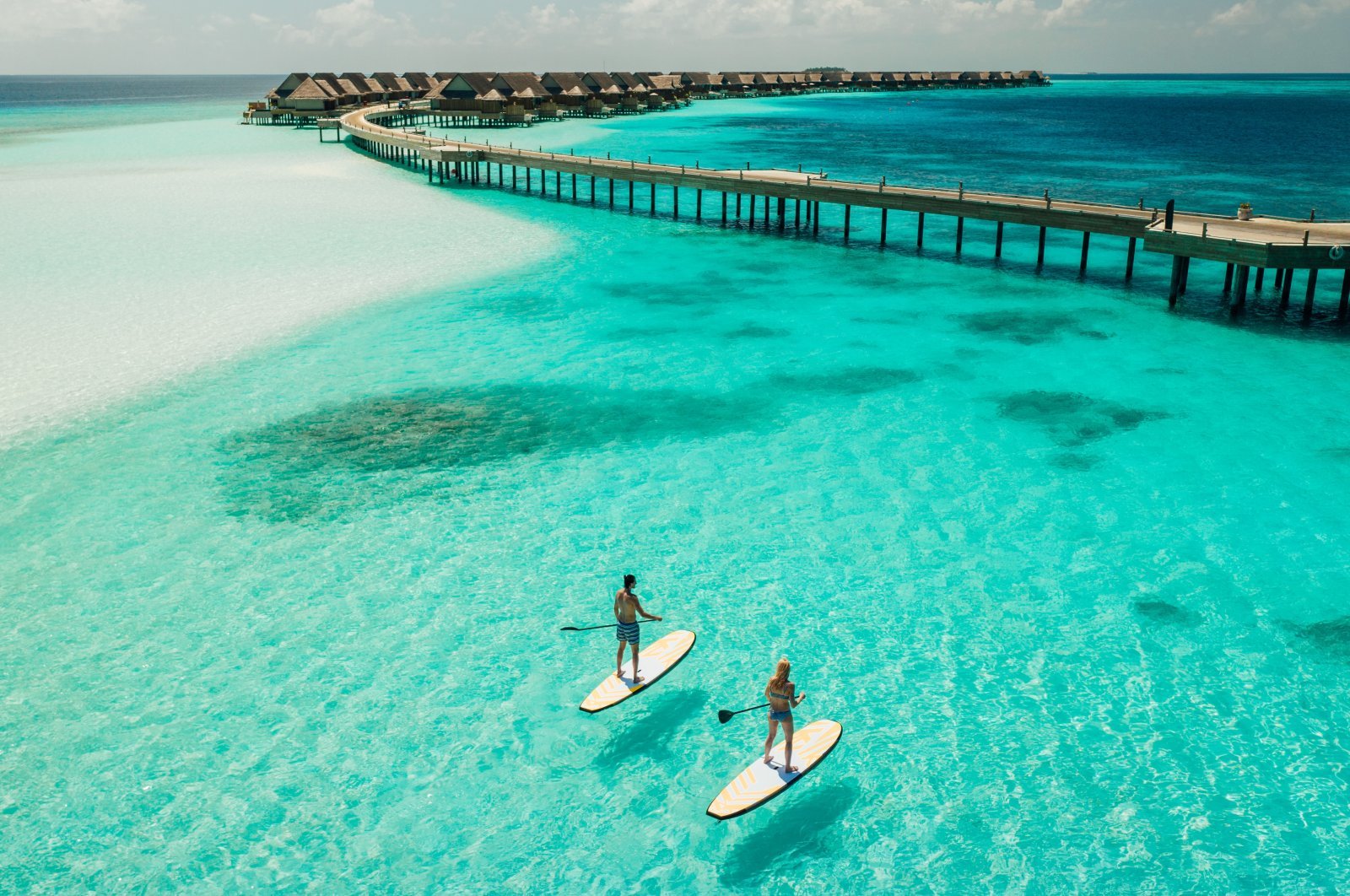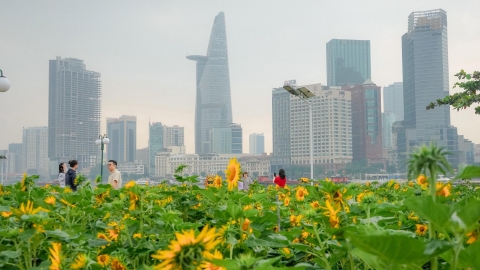Indian tourists are calling for a boycott of the Maldives, a popular holiday destination, in increasing intensity despite sanctions being imposed on three officials for their controversial statements, according to CNBC.
The incident triggered a wave of flight cancellations and hotel booking cancellations, putting pressure on the country's tourism revenue over the past two weekends.
Mass flight cancellations
The India Express reported that thousands of Indian tourists have canceled their trips to the Maldives.
EaseMyTrip – a major online travel booking portal in India – demonstrated its support for the country by closing all flight bookings to the Maldives, removing images of the island from its website, and recommending other Indian Ocean archipelagos such as Lakshadweep, the Andaman and Nicobar Islands, or the island nation of Sri Lanka.
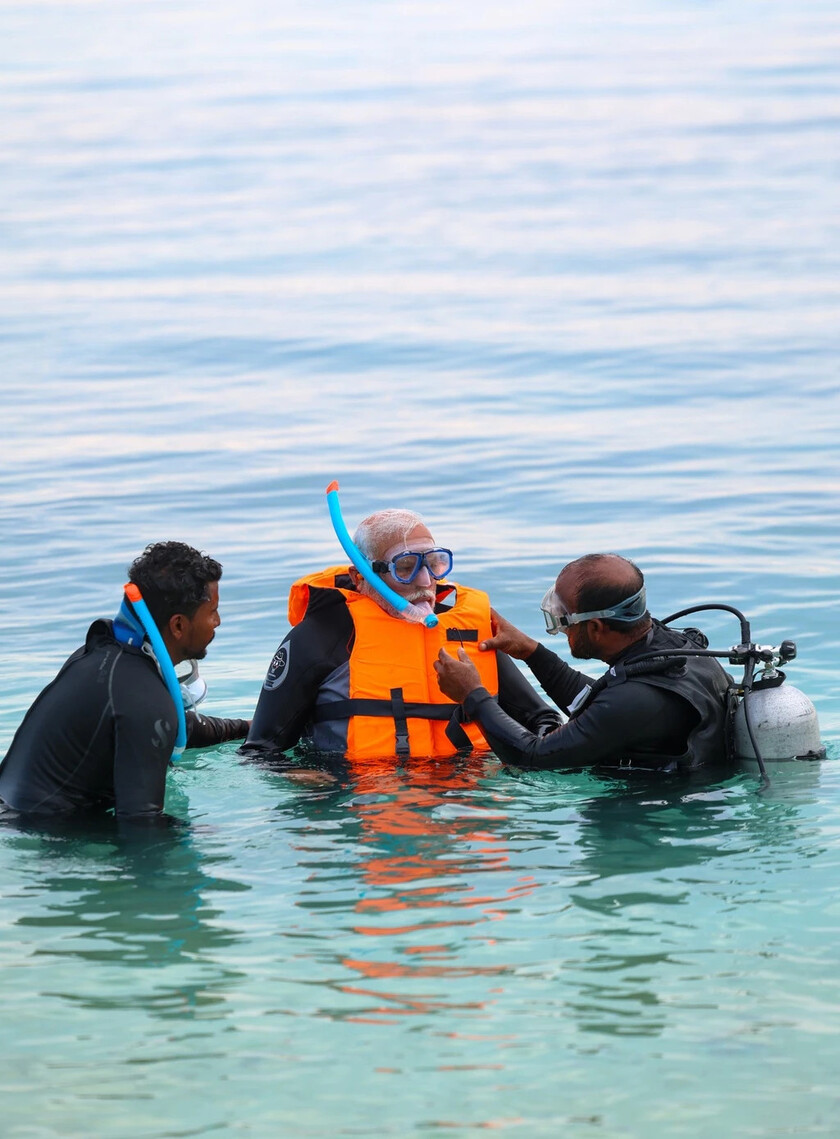
Indian Prime Minister Narendra Modi posts a picture of himself scuba diving.
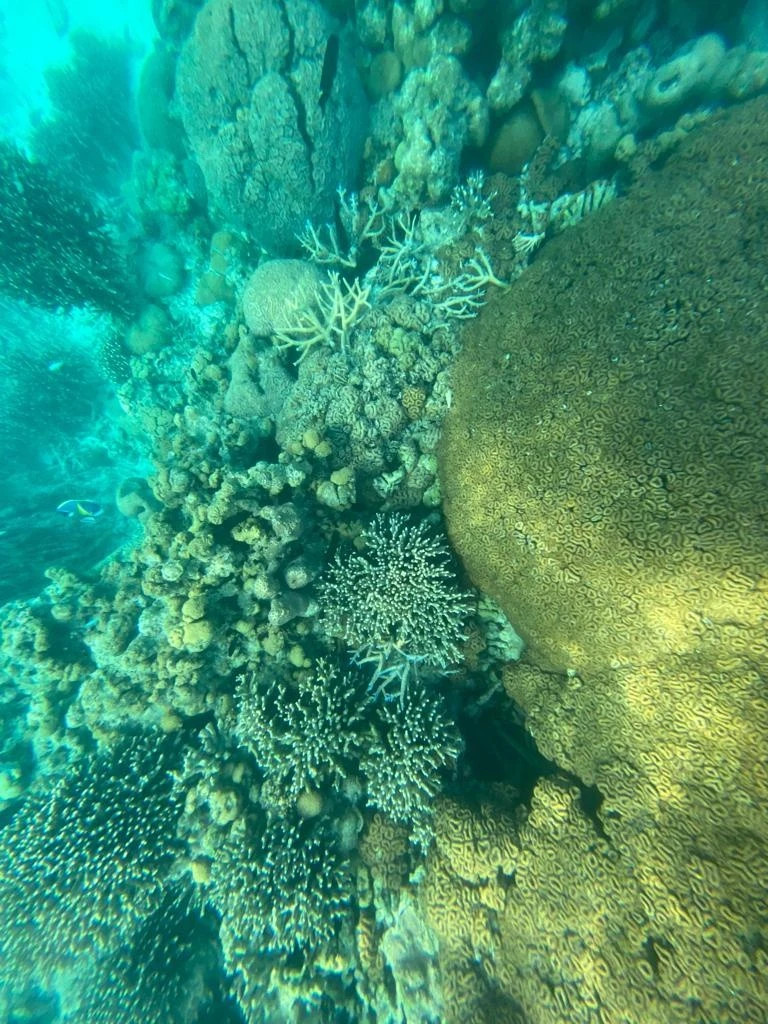
...aimed at attracting tourists to Lakshadweep.
On January 9th, Ankit Chaturvedi, Vice President and Global Marketing Director of Rategain, an Indian-based travel software company, reported that bookings on the island had dropped by 40% over the previous weekend.
"The number of visitors to the Maldives on weekends should have increased as in previous months, but the incident caused a significant drop in occupancy rates on those two weekend days," he told CNBC.
What happened
The boycott stemmed from three Maldivian officials reacting to an image posted on social media by Indian Prime Minister Narendra Modi.
Specifically, Modi posted a series of photos taken in Lakshadweep – an archipelago in southern India – on the X platform, accompanied by glowing praise to promote the tourist destination.
In the comments section, many Indian citizens praised Modi for doing a great job promoting local tourism. However, some suggested that he posted the message as a way to encourage people to vacation in Lakshadweep instead of the Maldives, even though Modi didn't mention the Maldives in his post.
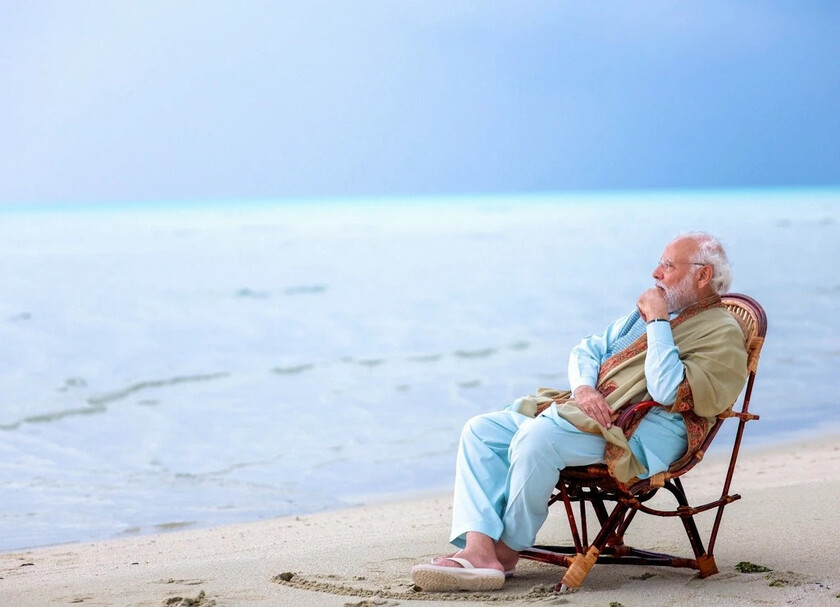
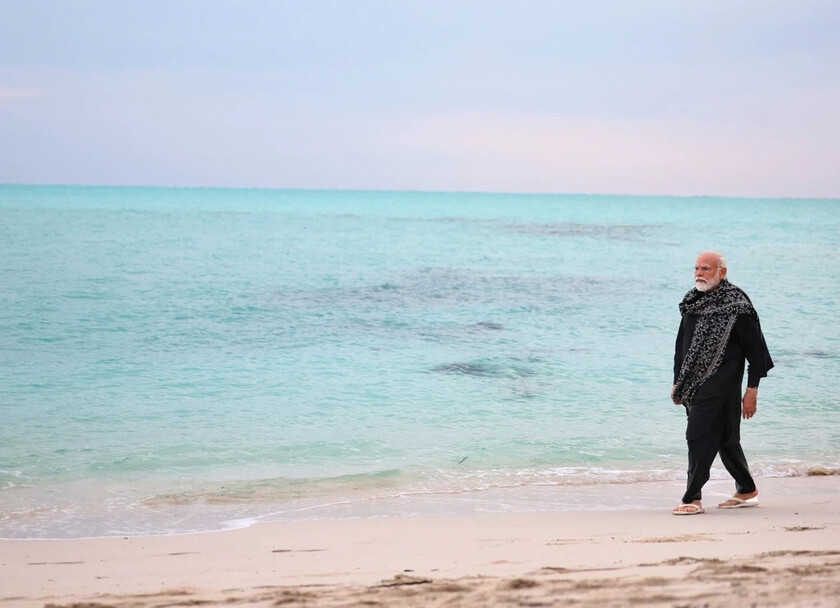
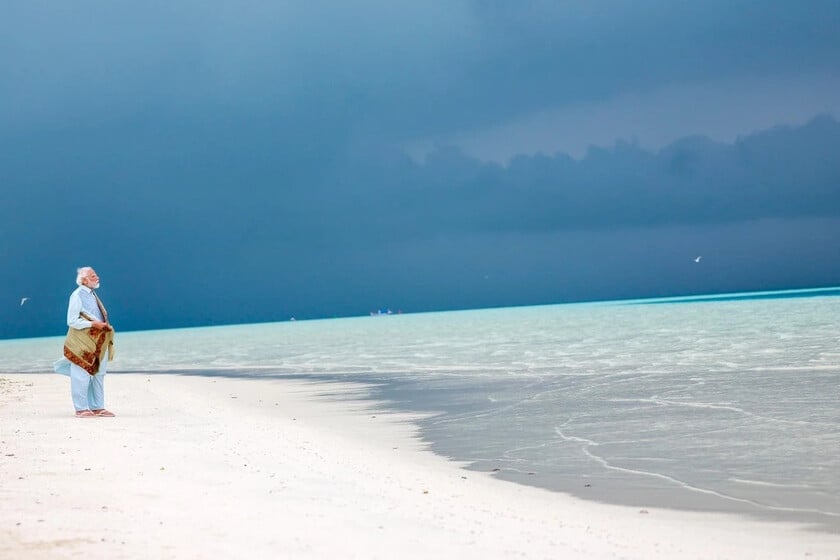
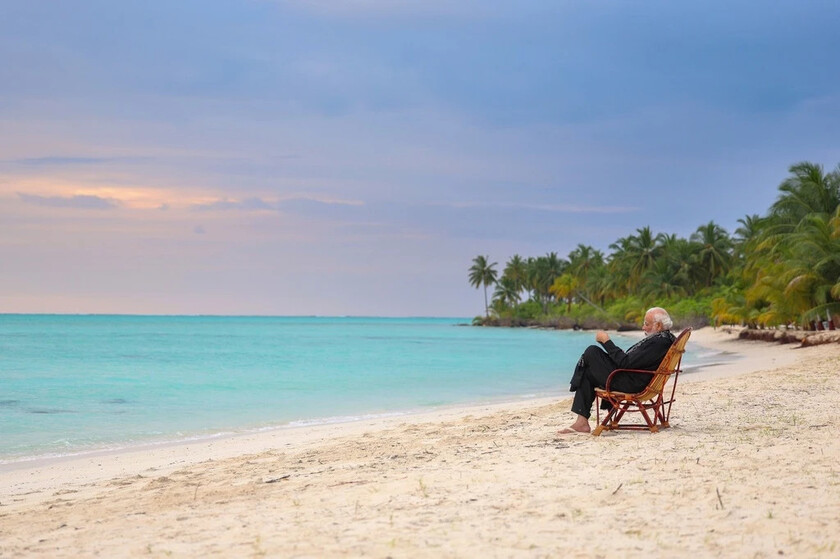
Indian Prime Minister Narendra Modi posted on the X platform to promote tourism in the Lakshadweep Islands.
Three Maldivian officials commented angrily on Modi's post.
The comments from Maldivian officials have angered Indians.
On January 6, a senior Maldivian official told Reuters that the three officials responsible for the inappropriate remarks were Malsha Shareef, Mariyam Shiuna, and Abdulla Mahzoom Majid. All three work for the Ministry of Employment, Information and Youth Arts and have been disciplined.
In a statement, the Maldivian government asserted that those comments were purely personal and did not represent the views of the entire country.
Attention is focused on Lakshadweep
The wave of calls to boycott the Maldives has drawn media attention from around the world to Lakshadweep – an island cluster said to have scenery quite similar to the Maldives, boasting coral reefs hidden beneath pristine white sand beaches. Previously, Lakshadweep was not widely known.
Located approximately 2,000 km from the capital New Delhi, the Maldives, a true paradise for Indian tourists, is a major destination. According to Maldives tourism statistics, in 2023, more than one in ten visitors came from India, making India the largest market share for the Maldives, followed by Russia and China.
With the Chinese tourist market yet to recover, the market of a country with a billion people like India is a "fertile ground," not to mention that the country is expected to rank fourth in the world in terms of spending on tourism by 2030.
The careless remarks of three Maldivian officials inadvertently "ceded" the opportunity to increase tourism revenue to other destinations, especially Lakshadweep.
The extent of the damage is still unclear, but the Indian tourist market contributed to Maldives tourism revenue reaching $380 million (approximately 9.2 billion VND) in 2023.
Given the volatile nature of social media, Chaturvedi hopes the wave of outrage will "quickly subside."
However, the power of hashtags is what worries Maldivian authorities. Tags beginning with the "#" symbol have become popular. #ExploreIndianIslands and #ChaloLakshadweep are being actively shared by tourists and Bollywood celebrities alike.
Furthermore, this person believes that Indian Prime Minister Narendra Modi's post is part of a plan to promote tourism in the country. This is followed by a tourism-related agenda from the government.
Meanwhile, Indian aviation consultancy CAPA argues that the real impact of the boycott is merely "ephemeral" compared to actual travel, unless negative sentiment escalates to the point where Indian tourists genuinely feel unwelcome in the Maldives.
CAPA also pointed out that this controversy highlights the travel mentality of a particular group of tourists.
"The current situation shows how tourism can be drawn into geopolitical and economic issues, especially when a destination is heavily dependent on key source markets, of which India is one," CAPA told India Express.

 VI
VI EN
EN



